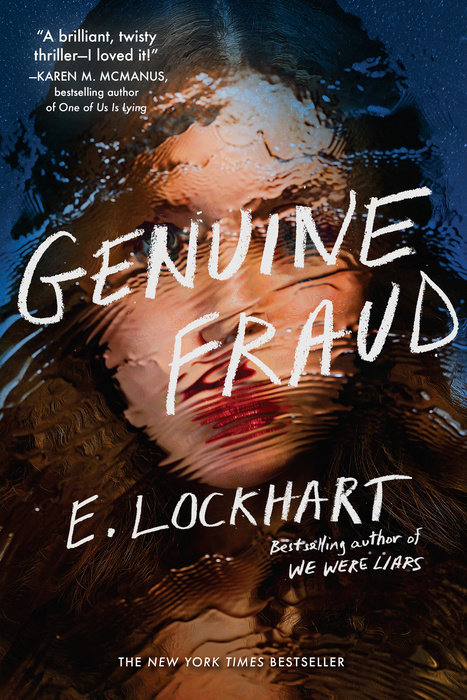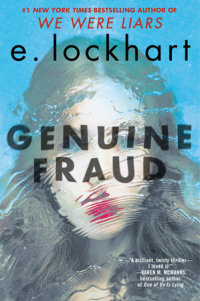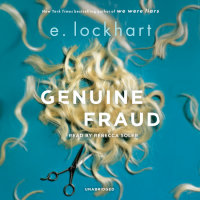Begin here:
Third week in June, 2017
Cabo San Lucas, Mexico
It was a bloody great hotel.
The minibar in Jule’s room stocked potato chips and four different chocolate bars. The bathtub had bubble jets. There was an endless supply of fat towels and liquid gardenia soap. In the lobby, an elderly gentleman played Gershwin on a grand piano at four each afternoon. You could get hot clay skin treatments, if you didn’t mind strangers touching you. Jule’s skin smelled like chlorine all day.
The Playa Grande Resort in Baja had white curtains, white tile, white carpets, and explosions of lush white flowers. The staff members were nurselike in their white cotton garments. Jule had been alone at the hotel for nearly four weeks now. She was eighteen years old.
This morning, she was running in the Playa Grande gym. She wore custom sea-green shoes with navy laces. She ran without music. She had been doing intervals for nearly an hour when a woman stepped onto…
Begin here:
Third week in June, 2017
Cabo San Lucas, Mexico
It was a bloody great hotel.
The minibar in Jule’s room stocked potato chips and four different chocolate bars. The bathtub had bubble jets. There was an endless supply of fat towels and liquid gardenia soap. In the lobby, an elderly gentleman played Gershwin on a grand piano at four each afternoon. You could get hot clay skin treatments, if you didn’t mind strangers touching you. Jule’s skin smelled like chlorine all day.
The Playa Grande Resort in Baja had white curtains, white tile, white carpets, and explosions of lush white flowers. The staff members were nurselike in their white cotton garments. Jule had been alone at the hotel for nearly four weeks now. She was eighteen years old.
This morning, she was running in the Playa Grande gym. She wore custom sea-green shoes with navy laces. She ran without music. She had been doing intervals for nearly an hour when a woman stepped onto the treadmill next to her.
This woman was younger than thirty. Her black hair was in a tight ponytail, slicked with hair spray. She had big arms and a solid torso, light brown skin, and a dusting of powdery blush on her cheeks. Her shoes were down at the heels and spattered with old mud.
No one else was in the gym.
Jule slowed to a walk, figuring to leave in a minute. She liked privacy, and she was pretty much done, anyway.
“You training?” the woman asked. She gestured at Jule’s digital readout. “Like, for a marathon or something?” The accent was Mexican American. She was probably a New Yorker raised in a Spanish-speaking neighborhood.
“I ran track in secondary school. That’s all.” Jule’s own speech was clipped, what the British call BBC English.
The woman gave her a penetrating look. “I like your accent,” she said. “Where you from?”
“London. St. John’s Wood.”
“New York.” The woman pointed to herself.
Jule stepped off the treadmill to stretch her quads.
“I’m here alone,” the woman confided after a moment. “Got in last night. I booked this hotel at the last minute. You been here long?”
“It’s never long enough,” said Jule, “at a place like this.”
“So what do you recommend? At the Playa Grande?”
Jule didn’t often talk to other hotel guests, but she saw no harm in answering. “Go on the snorkel tour,” she said. “I saw a bloody huge moray eel.”
“No kidding. An eel?”
“The guide tempted it with fish guts he had in a plastic milk jug. The eel swam out from the rocks. It must have been eight feet long. Bright green.”
The woman shivered. “I don’t like eels.”
“You could skip it. If you scare easy.”
The woman laughed. “How’s the food? I didn’t eat yet.”
“Get the chocolate cake.”
“For breakfast?”
“Oh, yeah. They’ll bring it to you special, if you ask.”
“Good to know. You traveling alone?”
“Listen, I’m gonna jet,” said Jule, feeling the conversation had turned personal. “Cheerio.” She headed for the door.
“My dad’s crazy sick,” the woman said, talking to Jule’s back. “I’ve been looking after him for a long time.”
A stab of sympathy. Jule stopped and turned.
“Every morning and every night after work, I’m with him,” the woman went on. “Now he’s finally stable, and I wanted to get away so badly I didn’t think about the price tag. I’m blowing a lot of cash here I shouldn’t blow.”
“What’s your father got?”
“MS,” said the woman. “Multiple sclerosis? And dementia. He used to be the head of our family. Very macho. Strong in all his opinions. Now he’s a twisted body in a bed. He doesn’t even know where he is half the time. He’s, like, asking me if I’m the waitress.”
“Damn.”
“I’m scared I’m gonna lose him and I hate being with him, both at the same time. And when he’s dead and I’m an orphan, I know I’m going to be sorry I took this trip away from him, d’you know?” The woman stopped running and put her feet on either side of the treadmill. She wiped her eyes with the back of her hand. “Sorry. Too much information.”
“S’okay.”
“You go on. Go shower or whatever. Maybe I’ll see you around later.”
The woman pushed up the arms of her long-sleeved shirt and turned to the digital readout of her treadmill. A scar wound down her right forearm, jagged, like from a knife, not clean like from an operation. There was a story there.
“Listen, do you like to play trivia?” Jule asked, against her better judgment.
A smile. White but crooked teeth. “I’m excellent at trivia, actually.”
“They run it every other night in the lounge downstairs,” said Jule. “It’s pretty much rubbish. You wanna go?”
“What kind of rubbish?”
“Good rubbish. Silly and loud.”
“Okay. Yeah, all right.”
“Good,” said Jule. “We’ll kill it. You’ll be glad you took a vacation. I’m strong on superheroes, spy movies, YouTubers, fitness, money, makeup, and Victorian writers. What about you?”
“Victorian writers? Like Dickens?”
“Yeah, whatever.” Jule felt her face flush. It suddenly seemed an odd set of things to be interested in.
“I love Dickens.”
“Get out.”
“I do.” The woman smiled again. “I’m good on Dickens, cooking, current events, politics . . . let’s see, oh, and cats.”
“All right, then,” said Jule. “It starts at eight o’clock in that lounge off the main lobby. The bar with sofas.”
“Eight o’clock. You’re on.” The woman walked over and extended her hand. “What’s your name again? I’m Noa.”
Jule shook it. “I didn’t tell you my name,” she said. “But it’s Imogen.”



